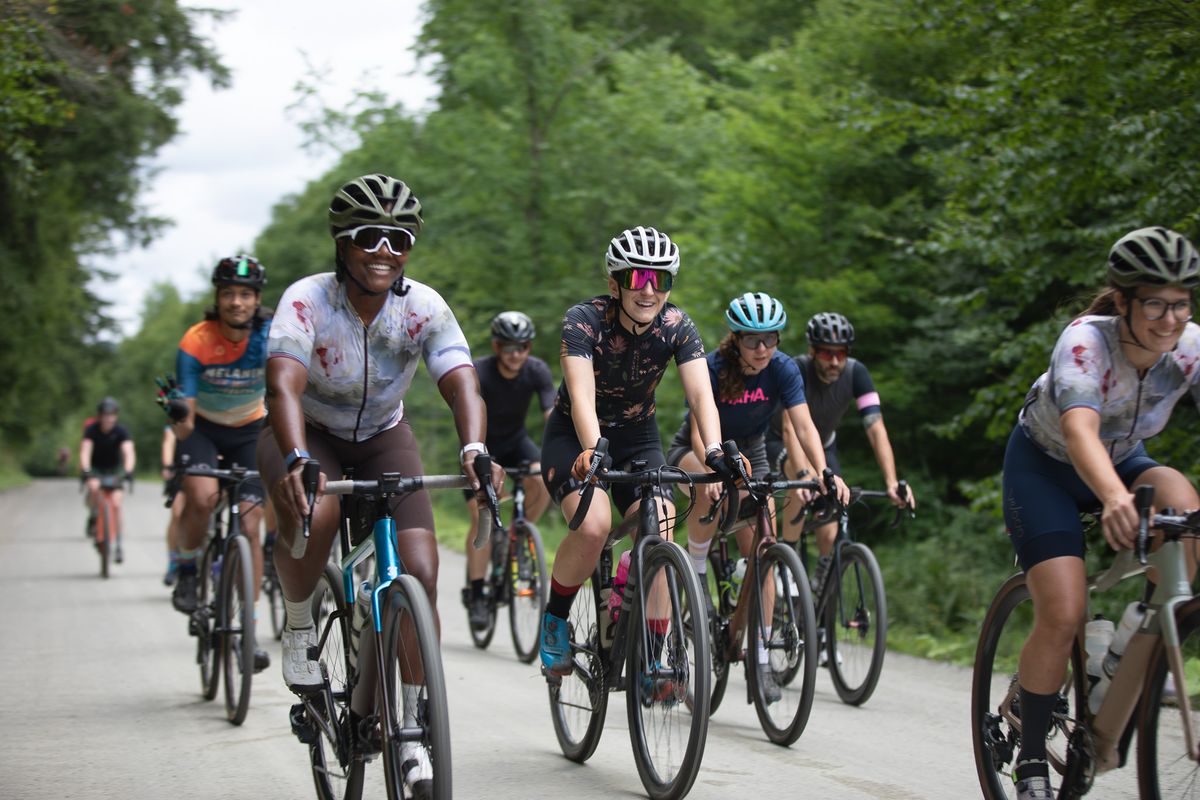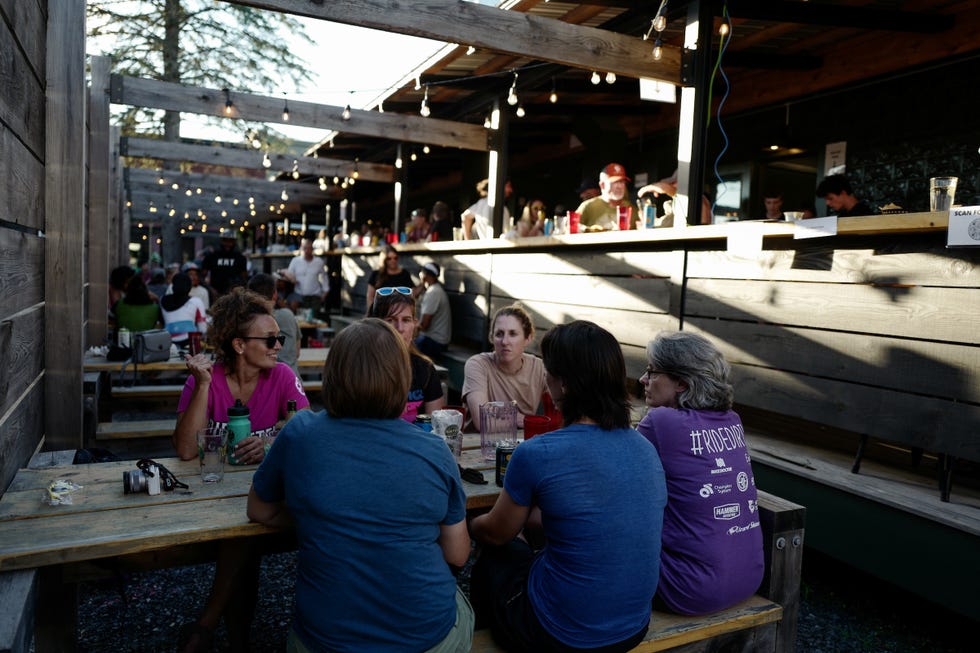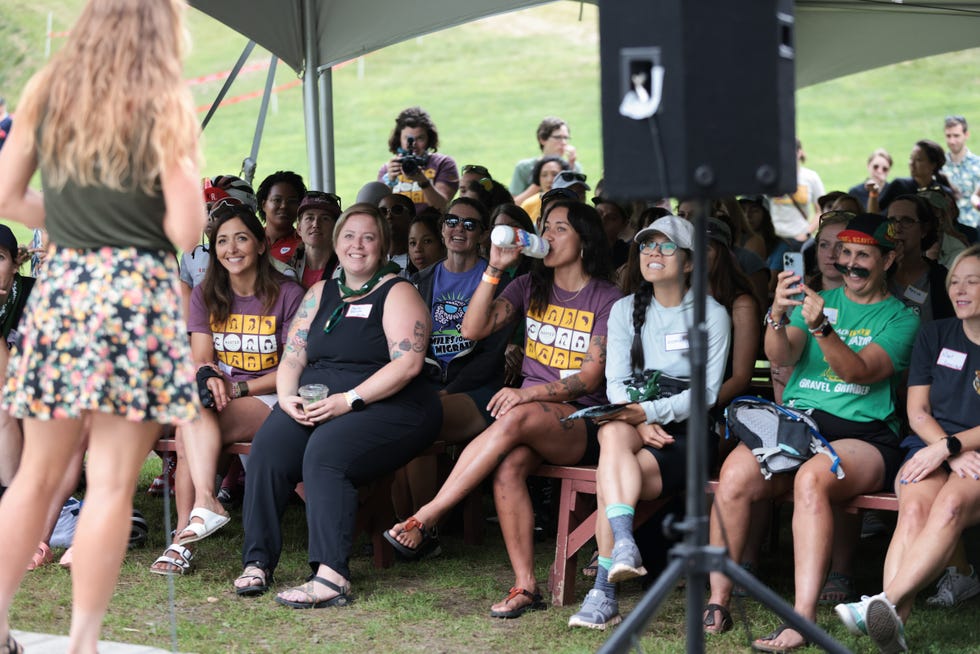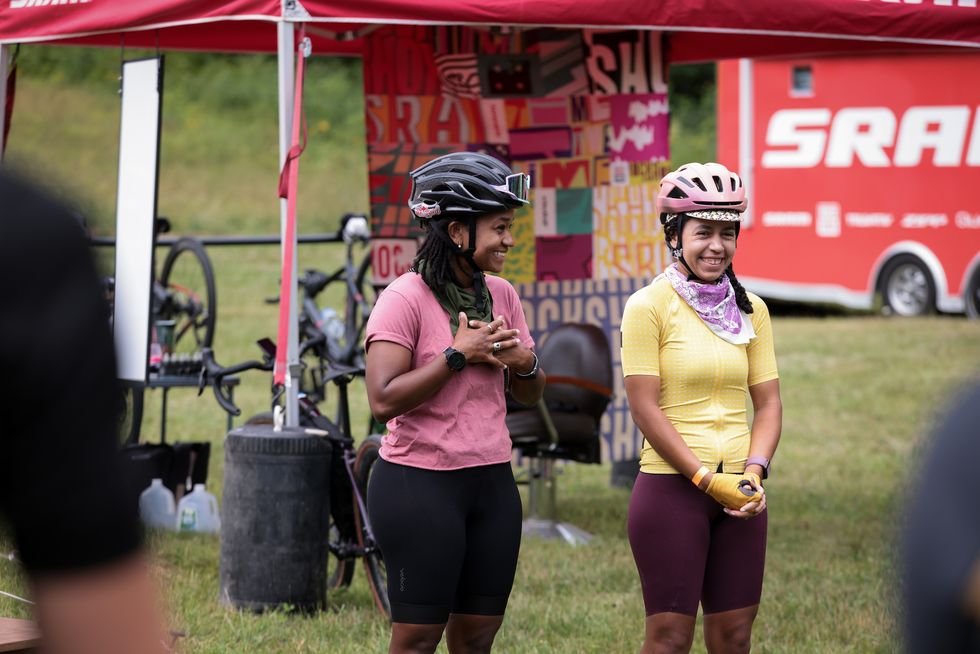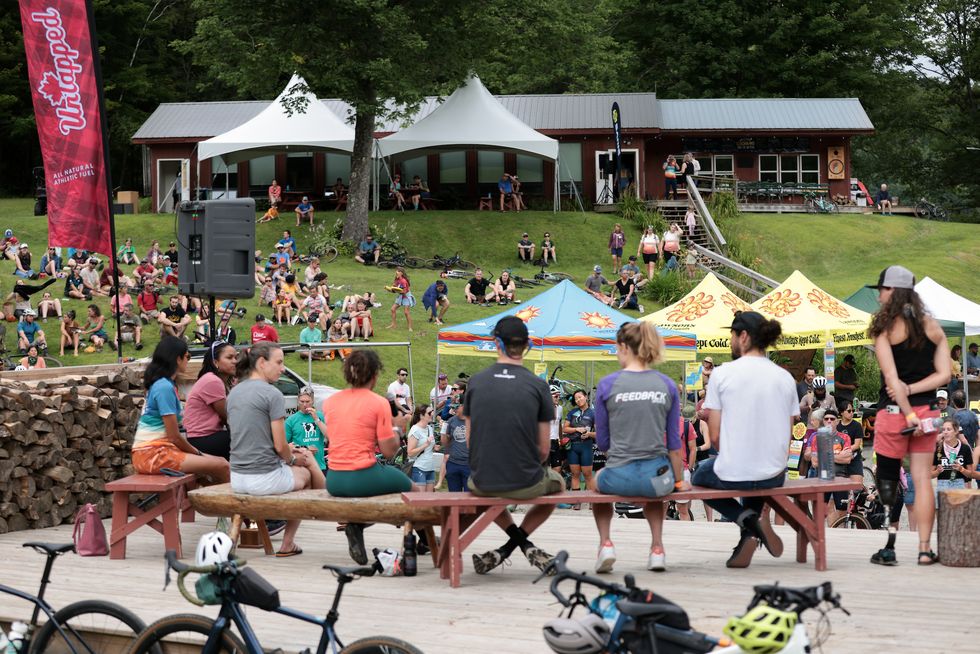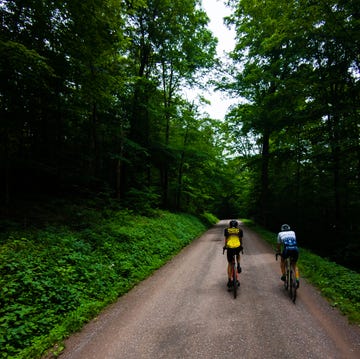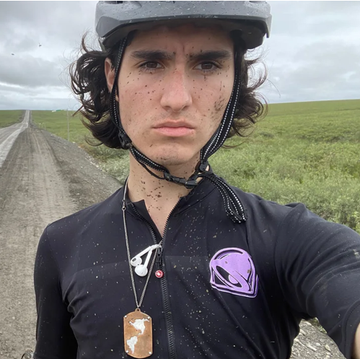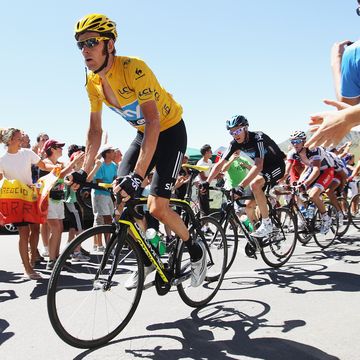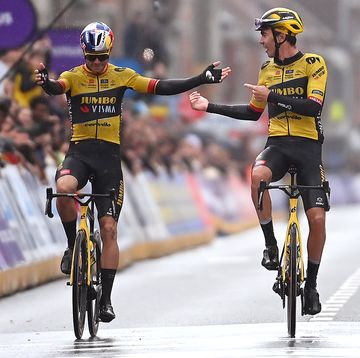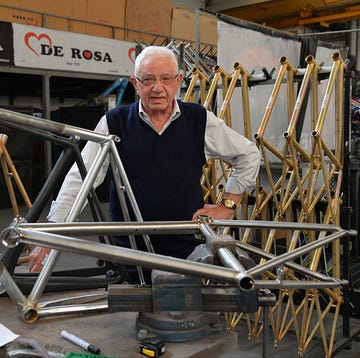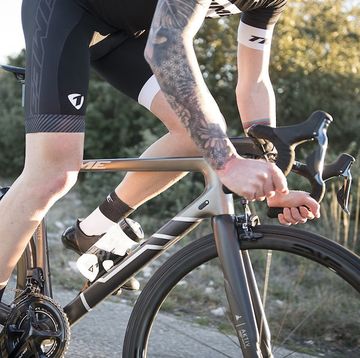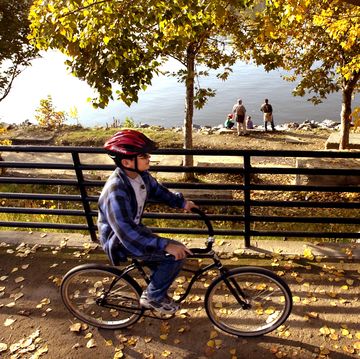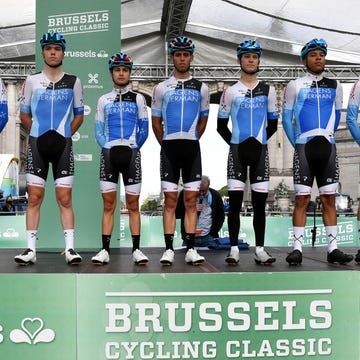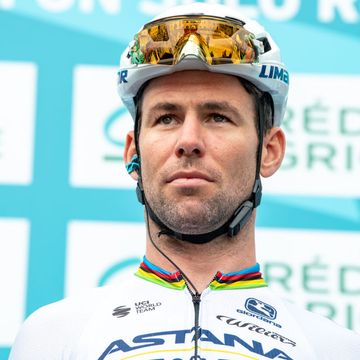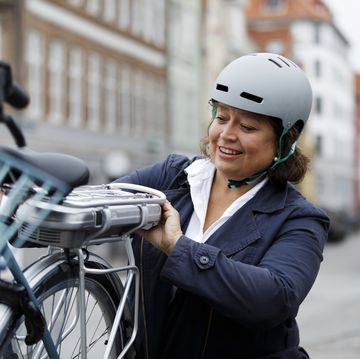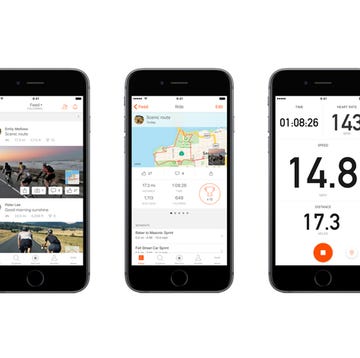On Sunday, July 31st, nationally recognized professionals, local cycling legends, and gravel enthusiasts from all over the country lined up for Rooted Vermont, a gravel event that since its start in 2019, has aimed to showcase not only the amazing gravel roads in the Richmond, VT area, but also the other aspects of Vermont living: maple syrup, maple creemees, and, most importantly, community. “We wanted it to be about more than just the ride,” says Laura King who alongside Kristin Motley organized the event. That sentiment was deeply felt throughout the three-day weekend of July 29-31.
Only in its third year running, the event looked and felt a little different from others due to deliberate efforts from King and Motley, who that weekend celebrated the feat of registering equal numbers of men and women to the ride. A great accomplishment for a cycling event, especially an off-road one. But how exactly did they achieve this?
Known for its “Mullet Protocol” (business in the front, party in the back)—Rooted Vermont received thousands of entries that were put through a random selection process or lottery. King and Motley narrowed the entries to a group of 850 applicants, from which six nonbinary athletes were selected, followed by an equal draw of male and female-identifying riders. Event partners also received comped entries for their athletes, ambassadors, and staff, stipulating that those entries should be split equally between men and women. “This can be difficult to do in the bike industry,” King says, “yet, every year, our partners have come alongside us more strongly.”
The event’s emphasis on community cannot be overstated. With a well-curated and intimate vendor village, multiple group rides with different paces and themes, many activations, and a slip’ n slide to close out the weekend, there are ample opportunities to connect with people throughout the event. “We’re pretty sure that everyone came here for more than just a start line, and we want to make sure people go home with more than just a finish time,” Motley says.
On the Friday of the event weekend, the race hosts several group rides and a welcome party where participants can enjoy beer, food, and maple creemees, a staple Vermont experience and a first-time one for many out-of-towners.
While other gravel events will host the race on a Saturday, Rooted Vermont uses this day to invite racers to participate in some meaningful activations before race day. That morning following the welcome party, more group rides take off, including a ride for gender-expansive folks. In the early afternoon, the Saris Women’s Forum takes place, along with roundtables with pros, and a short first-aid clinic held by the local EMTs.
This year’s forum included two keynote speakers, Hillary Allen and Marley Blonsky. Following the keynotes, the forum had four concurrent sessions ranging in topics from how to create more diversity in cycling to fueling for your ride. Event sponsor SRAM also hosted a panel that included not only world-class athletes, but also community leaders in cycling. The event’s emphasis on creating opportunities for connection and community building is deliberate.
While this was the first year the event had equal registration between men and women, the organizers laid the foundation for this achievement from the beginning. From the first start line in 2019, King and Motley sought to achieve this. “Fifteen percent participation by women wasn’t enough… fifty percent participation should be the standard, and that’s what we sought to achieve,” said Motley.
But how exactly did they do it? One of the signature events of Rooted Vermont is the Rooted Women’s clinic, which takes place a few months ahead of the race. The impetus for the clinic is to help lower the bar of entry for female-identifying race participants. “We felt like signing up for a race like Rooted might be a lot for some folks,” Motley says. While the clinic started as an opportunity to address the emotional, mental, and technical side of riding, it’s become much bigger. “We want to show one another that it matters that you showed up to this gravel event… that is the essence of Rooted Vermont,” Motley says. “We want to be a race that attracts elite riders, but also those that are not in the top 10 percent.”
The inclusion of nonbinary podiums is another step forward that some events are taking. At Rooted, the podium was first featured in 2021 after a lot of behind-the-scenes work by the race organizers to ensure the inclusion of non-binary riders at the event would be a worthwhile experience. According to Motley, it started in 2020 when the non-binary community became more vocal about their desire for a separate gender category. At the time, BikeReg did not have a “nonbinary” option when registering for a race. The closest option was a “prefer not to answer,” which would not allow for folks to have a recorded race time, and thus a podium was nearly impossible. So Motley and King got to work lobbying for a non-binary option in the registration process.
Eventually, they succeeded, and a nonbinary category was implemented. That year, the race welcomed two nonbinary riders. This year the race had six nonbinary registrants, proving the adage, “if you build it, they will come.”
Quinn Schoff, a racer living in Essex, Vermont, had an impressive finish, taking home first in the non-binary category. For Quinn, the inclusion of a non-binary category was great. “Having more people like you at the race makes it feel safer,” Schoff says, “but I also love competing, so having a non-binary category ensures that I can be a racer and still be myself.”
While creating gender parity in cycling has been a long journey, it is certainly not the end of the road for creating a more equitable cycling community.
Like other events, Rooted is also making strides to create inroads for more racial diversity at its events. This year, the organizers worked with groups like Melanin Base Miles and KRT/QRT racing to bring more Black and brown folks to the race. For novice gravel racer Ajoa Abrokwa, these opportunities have made a difference in her budding racing career. “The ride and the scenery were really cool,” Abrokwa says, “but the culture that is being created and the intentionality around inclusivity was the most meaningful part for me.” Abrokwa was especially grateful to have taken part in the Women’s Forum on Saturday. “It was diverse and inclusive. Seeing other folks of color made me feel safe, but also, the way that the organizers and other folks at the event welcomed us there meant a lot to me.”
It’s not just about Rooted Vermont. There is a significant element of wanting to positively impact women’s cycling by setting a new standard for what is expected. It is no longer okay to bring diversity to your event. We need to create a fun and meaningful experience for everyone at the event, but especially those that have been historically marginalized.
While Rooted Vermont has made some large leaps toward gender equity, other events are also creating huge inroads for cyclists of different backgrounds. Grounded Nebraska, organized by Cait Dumas and Susan Cronin, had its inaugural event this year, wherein the final gender split was eight percent nonbinary and gender expansive, forty-three percent women, and forty-nine percent men. Other events like Garmin Gravel Worlds celebrated registering 1,000 women to race with their own start line.
These are just a few of the events creating more opportunities for women and gender-expansive folks to experience the joys of gravel racing. Meanwhile, over Labor Day weekend, the Maryland Cycling Classic, a UCI road race that took place in Baltimore, MD, hosted seventeen teams with athletes from over twenty-five countries, but did not include a women’s field.
For King and Motley, the magic of experiencing the momentum that came out of the women’s forum and the Rooted Vermont weekend keeps them going. They see how the event inspires women and other marginalized folks to keep growing their own riding communities back home is well worth the effort that goes into planning.
For other races, this can be a huge step forward in the efforts to grow our sport. But it has to be done in meaningful and effective ways. Inviting people in is one thing. Creating a space for folks to feel welcome, to feel seen, and to be in community with each other can make the difference between just another finish line and a race weekend experience that you come back for year after year.
